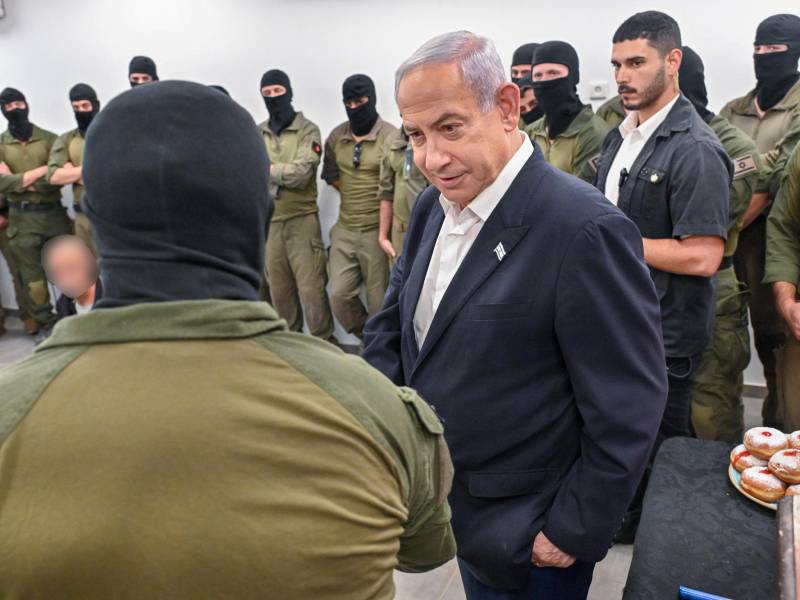Israeli Prime Minister Benjamin Netanyahu acknowledged the “very heavy price” his country is paying in the ongoing war on Gaza.
The Israeli military reported on 25 December that more than a dozen soldiers were killed while fighting in Gaza, bringing the total to 156 in the ground assault.
In statements made on 24 December at a cabinet meeting at the Kirya military base in Tel Aviv, Israel, Netanyahu emphasized that there was “no choice” but to continue the fight.
The Israeli Prime Minister reiterated his commitment to Israel’s stated goals of eliminating Hamas and ensuring the safe return of hostages held in Gaza.
Palestine’s health ministry in Gaza reported a tragic incident in which 70 people were killed by Israel in a strike on the Maghazi camp, near Deir al-Balah in central Gaza on 24 December.
Israel killed more than 20,000 Palestinians, predominantly women and children, and injured over 54,000 since 7 October.
The United States, a key ally of Israel, emphasized the “critical need” to protect civilian lives. However, President Joe Biden did not request a ceasefire during a recent call with Netanyahu, both leaders believing it would benefit Hamas.
The U.S. vetoed a cease-fire resolution in the Security Council on 8 December, as well as an 18 October resolution calling for humanitarian pauses. The U.S. also watered down a Security Council resolution that originally called for an immediate ceasefire, letting it pass in the Security Council on 22 December after the resolution refrained from calling for a ceasefire.
Talks in Egypt for a fresh truce have not yet yielded results. Egypt’s proposed three-stage plan, including a two-week humanitarian truce, has so far not been agreed upon.
As the war on Gaza continues, Israel faces international pressure to reduce the intensity of its operations, especially in light of investigations revealing the use of heavy bombs contributing to a high civilian death toll in Gaza.
The death toll of Israeli soldiers, now exceeding 150, in addition to the military’s killing of three Israeli hostages and failure to recover hostages by force, may impact public support for the war in Israel and abroad.
THE CONFLICT SO FAR
After a surprise attack conducted on 7 October by Hamas on a number of southern Israeli towns which resulted in the deaths of an estimated 1,200 people and more than 220 being taken hostage by Hamas, Israel launched a retaliatory bombing campaign against what it describes as ‘terrorist targets’ in the Gaza Strip.
Over 20,000 Palestinians have been killed in the Gaza Strip — including nearly 8,000 children — and over 53,000 others injured. Meanwhile, at least 259 Palestinians have been killed in the West Bank and at least 3,365 have been injured.
The priority of the Egyptian government since the beginning of the conflict has been de-escalation and the securing of a path for aid to enter the Gaza Strip through the Rafah crossing. Israel bombed the crossing at least six times, and limited aid trucks have crossed to Gaza so far, which UN officials warn is insufficient amid dire humanitarian conditions.
Most Western countries, with the United States at the forefront, have expressed unconditional support for Israel, despite the steadily rising death toll in Gaza. Meanwhile, the United Nations General Assembly has issued a resolution calling for a ceasefire on 8 December, and the Security Council issued a resolution calling for unrestricted aid to Gaza on 18 December.






Comment (1)
[…] bombardment of Gaza has intensified in the last few days, as Prime Minister Benjamin Netanyahu warned recently that the war would soon intensify. The Israeli military responded by ordering residents of […]